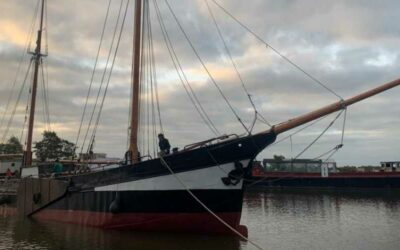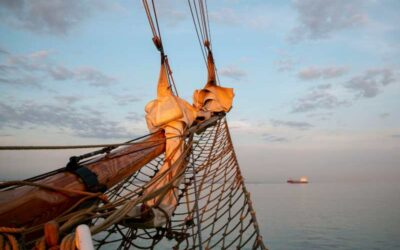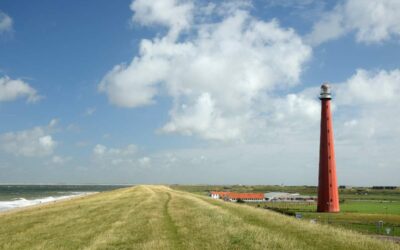In part one of this story, I spoke about Fiery Cross and its legendary status among the famous clipper ships of the 19th Century.
These ships were the pinnacle of thousands of years of learning, testing and trials on the sea. They cut smoothly through the water, were capable of amazing speed and overcoming the elements, all while transporting cargo.
However, the arrival of steam curtailed this ‘golden age of sail’. Erskine Childers, writing for The Times in 1914 said that: “The clipper flourished for barely a generation as the pinnacle of cargo transport on the sea, yet is considered the climax of the sailing ship.”
The new Clipper
The wind has not disappeared and neither has the skill of sailing a wind powered vessel. There are a growing number of companies like Fairtransport which have already shown the viability of modern-day sail cargo. Fairtransport is currently using the brigantine Tres Hombres to ship cargo across the Atlantic. She is considered the unoffical ambassador of the new wave of cargo sailing vessels.
EcoClipper is planning to return the clipper to the sea, with an ‘EcoClipper500 series’ of ships that are almost at the end of the design phase. When complete, these vessels will follow in the footsteps of legendary ships such as Fiery Cross, Cutty Sark and EcoClipper’s own inspiration – Noach.
‘The clipper flourished for barely a generation as the pinnacle of cargo transport on the sea, yet is considered the climax of the sailing ship’
The routes being planned will take an EcoClipper500 ship all over the world. They will follow the same eastern trade wind that tea competitors had caught in the 19th century, as well as those clippers that traded across the Atlantic and beyond.
Alan Villiers said that it takes three things make a clipper:
She must have sharp lines built for speed.
She must be tall sparred and be propelled by the largest possible spread of canvas.
She must use that sail, day and night, fair weather and foul.
Following exhaustive research, including expert computational fluid dynamics by Cape Horn Engineering, to perfect the hull shape, and the input of many respected sailors and engineers, plans for a new modern clipper are in their final stages.
An EcoClipper500 will be built in steel using modern construction techniques – an established step from the composite ships of the 19th century. It will have three masts and a square rig. Combined with a well-balanced underwater body this will provide the maximum possible propulsion power, along with maximum sustainability.
An EcoClipper500 will be capable of holding 500 tons of cargo, which would equate to the million Lbs of tea that a composite ship would have carried in the 1866 tea race.

Passenger travel and sustainability.
An EcoClipper500 will travel with more than just cargo. Interest in slow travel is growing and passengers looking to limit their environmental footprint while experiencing the world from a new angle will be welcomed aboard.
The passengers will enjoy cabins and a private passenger saloon which will be wood panelled and have a bar. The crew and trainees can expect more functional living quarters, but will also be comfortable. Everyone will be able to experience sunrise or sunset on an open sea.
Considering sustainability, EcoClipper commissioned a Life Cycle Analysis which analysed the emissions produced in an EcoClipper500’s lifetime compared to that of a motor cargo vessel. The emissions for an EcoClipper500 ship are predominantly produced in the construction phase. Striving to be sustainable, EcoClipper is currently researching offsetting solutions.
Once launched, an EcoClipper500 will traverse the globe using nothing but (a highly trained crew) and the sustainable power of the wind, just as her illustrious predecessors once did.





